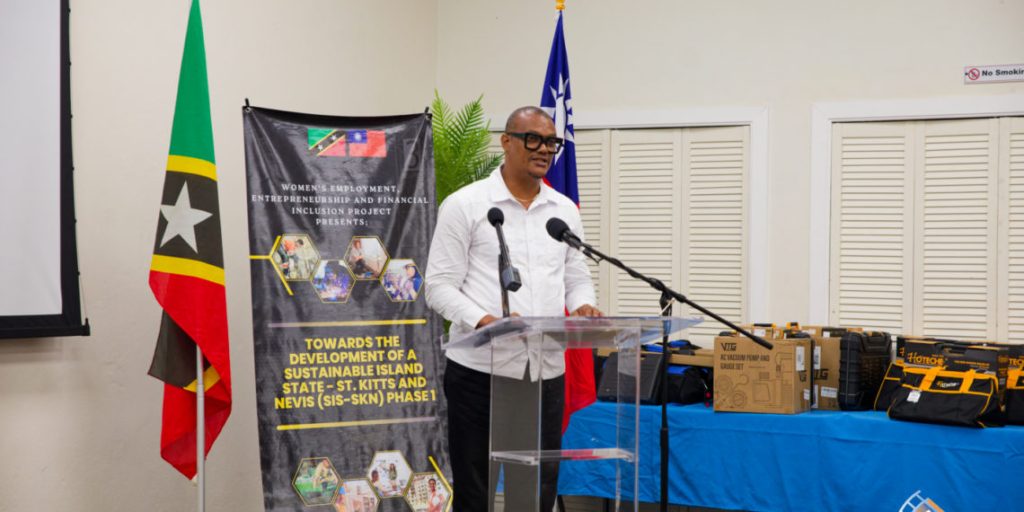Drew Administration Terminates CBI Program Following Passport Revocations, Severance of MSR Media Contract, and Agent Blacklisting.
The Citizenship by Investment (CBI) Programme of St. Kitts and Nevis, once hailed as the “platinum standard” of global citizenship programmes, is facing a severe crisis, marked by a series of controversies and missteps under the current administration of Prime Minister Dr. Terrance Drew. The government’s recent actions, while touted as efforts to restore integrity, are viewed by many as further evidence of the programme’s unraveling. These actions include the revocation of 13 citizenships for unpaid investment contributions, the blacklisting of two major international marketing agents – Latitude Consultancy and RIF Trust – accused of offering discounted investment options, and the termination of all ties with controversial investor Phillipe Martinez and his MSR Media operations. These decisive moves come amidst a backdrop of mounting instability and declining investor confidence, raising serious questions about the future of the programme.
The current crisis can be traced back to a series of questionable decisions by the Drew administration. A sudden and poorly communicated change in minimum investment thresholds created confusion and deterred potential investors. The appointment of a convicted fraudster as a key developer under the CBI programme sparked international outrage and significantly damaged the country’s reputation. Moreover, the abrupt dismissal of the CEO of the Citizenship by Investment Unit (CIU) further destabilized the programme and created a leadership vacuum. These actions, taken cumulatively, have fostered an atmosphere of uncertainty and eroded trust in the CBI programme, driving away high-net-worth individuals who seek stability and transparency.
As a result of these missteps, St. Kitts and Nevis is losing ground to competing jurisdictions like Antigua and Barbuda and Grenada, which have maintained policy continuity and investor confidence. The termination of the agreement with MSR Media, citing breaches of contract and a smear campaign against the programme, adds another layer of controversy. While the government portrays the revocation of citizenships and the blacklisting of marketing agents as a demonstration of its commitment to upholding the integrity of the CBI programme, critics argue that these measures are too little, too late, and merely highlight the extent of the damage already inflicted.
The government’s actions, encapsulated in the Saint Christopher and Nevis Citizenship (Deprivation of Citizenship) Order, 2025, aim to project a zero-tolerance stance on abuse of the programme. However, the timing and context of these actions suggest a reactive rather than proactive approach, underscoring the administration’s struggle to manage the escalating crisis. The revocation of citizenships, while potentially justified, serves as a public reminder of the programme’s vulnerabilities and the government’s previous failures to enforce its own rules effectively. Instead of restoring confidence, these measures may further exacerbate investor anxieties and contribute to the perception of a programme in disarray.
Experts in the CBI industry express deep concern about the future of the St. Kitts and Nevis programme. They argue that the current crisis is not simply a matter of isolated incidents but reflects a systemic breakdown of trust and leadership. Rebuilding the programme’s reputation and attracting investors will require a comprehensive overhaul, starting with the establishment of clear and consistent policies, transparent governance, and the appointment of competent and credible leadership. Without such fundamental changes, the programme risks further decline and may struggle to compete with more stable and reputable jurisdictions.
The situation facing the St. Kitts and Nevis CBI programme serves as a cautionary tale for other countries operating similar schemes. It highlights the importance of maintaining robust due diligence processes, ensuring policy consistency, and prioritizing transparency and accountability. The damage inflicted on the programme’s reputation underscores the long-term consequences of short-sighted decisions and the difficulty of regaining lost trust. The international community is closely watching the Drew administration’s next moves, recognizing that the future of the St. Kitts and Nevis CBI programme hangs in the balance. The government faces a formidable challenge in restoring the programme’s credibility and reclaiming its former status as a leading player in the global citizenship by investment market.
Share this content:








Post Comment